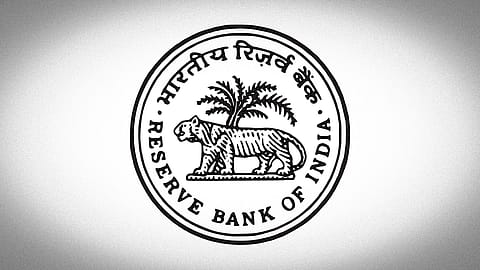Global Fintech Fest: AI offers new tools for inclusion and efficiency, but poses ethical challenges, says RBI’s Rabi Shankar
Outlining AI's potential to enhance India's financial sector's access and efficiency, the RBI deputy governor warned of ethical issues such as bias and accountability, calling for regulatory frameworks that enable innovation while maintaining stability

Artificial intelligence (AI) can transform how India’s financial sector operates by improving access, efficiency, and resilience, but only if used responsibly, said T. Rabi Shankar, deputy governor of the Reserve Bank of India (RBI), at the 6th Global Fintech Fest (GFF) 2025 in Mumbai.
“AI can expand financial access, strengthen safeguards, and reimagine efficiency,” said Shankar, adding that its ability to draw insights from alternative data such as transaction histories or utility payments could make credit assessment for unbanked customers more inclusive. “The use of massive data sources could also help detect fraud in real time and improve market risk modelling,” he noted.
According to him, AI has already begun transforming operational processes. “From KYC and loan processing to customer support through bots and virtual assistants, AI can deliver a paradigm shift in cost reduction and efficiency,” Shankar explained. He mentioned that natural language processing could make document handling seamless, while robo-advisors are helping small investors access affordable financial advice.
However, Shankar warned that the same data-driven systems that create efficiency can also embed bias. “AI systems trained on biased data can perpetuate discrimination in areas like credit profiling or hiring,” he said. “The lack of explainability—the so-called ‘black box’ problem—makes it hard for regulators and auditors to understand decisions, undermining accountability.”
He also warned about systemic risks. “When AI-driven trading models behave similarly, they can increase market volatility,” he said. “Assigning responsibility for AI mistakes is difficult, and legal frameworks often struggle to keep pace with rapid technological change.”
Highlighting ethical concerns, he added, “Using behavioural data for manipulative cross-selling or profiling raises serious questions. And while the debate on job displacement continues, what makes AI unique is that it creates intelligence itself — potentially making the human brain redundant, which is unprecedented.”
Shankar emphasised that recognising these risks should not hinder innovation. “The key is to enable innovation while safeguarding systemic stability,” he said. He advocated for regulatory frameworks that promote safe experimentation through sandboxes and open digital infrastructures, allowing firms to innovate responsibly.
Recommended Stories
He pointed to the RBI’s initiatives, such as the establishment of a committee on AI to draft guiding principles for responsible use, anchored in “trust, fairness, and accountability.” “AI can inform decisions, but it cannot own them; accountability must remain with humans,” he said.
Shankar said the RBI’s approach remains one of “progress with prudence.” “Through projects like Mule Hunter, an AI tool to combat mule accounts, and the upcoming digital payments intelligence platform, we aim to foster innovation without compromising stability,” he said. “AI holds immense promise, but its use must never come at the cost of the system’s integrity.”